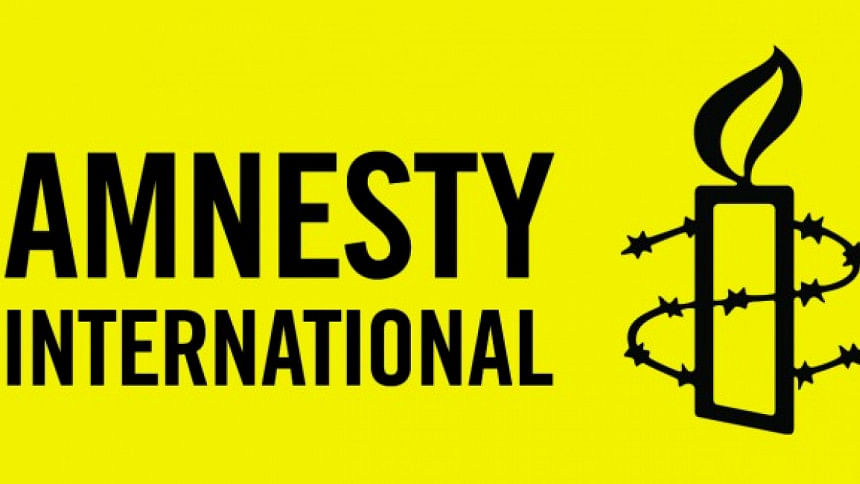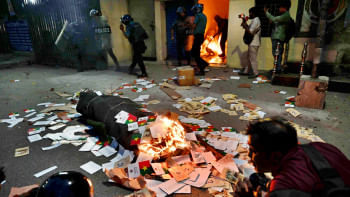Civilians in Rakhine being attacked

Amnesty International has found new evidence of indiscriminate attacks on civilians in Rakhine amid serious escalations in the ongoing armed conflict between the Myanmar military and the Arakan Army.
"The Myanmar military's utter disregard for civilian suffering grows more shocking and brazen by the day," Ming Yu Hah, deputy regional director for campaigns of Amnesty International (AI), said in a statement on Monday.
There are no signs of the conflict between the Arakan Army and the Myanmar military abating -- and civilians continue to bear the brunt, she said, calling for the UN Security Council to urgently refer the situation in Myanmar to the International Criminal Court.
All this is happening even as Myanmar faces a genocide case at the International Court of Justice for a military crackdown that drove out some 750,000 Rohingyas to Bangladesh in 2017. No Rohingya refugee could be repatriated in more than three years as they say there is no guarantee of safety and citizenship.
AI said it is concerned by recent reports of increased presence of Myanmar military troops along the Myanmar-Bangladesh border. Bangladesh also recently objected to the troops' mobilisation in Rakhine along the Bangladesh-Myanmar border.
Analysis of images recently revealed MM2 type landmines, often used by the Myanmar military, in civilian areas. This device is larger than most anti-personnel landmines, and typically inflicts severe damage.
Several incidents involving civilians injured or killed by landmines have been credibly reported in Rakhine and Chin States in recent months.
AI expressed concern over local media reports of the Myanmar military using Rohingya children for forced portering in Buthidaung.
A local civil society group estimates the number of civilians killed in this conflict since December 2018 in Rakhine and Chin States stands at 289, with 641 injured.
The true figure could not be independently verified, as a mobile internet shutdown and broader government crackdowns on media reporting have impeded documentation efforts.
However, in July 2020, Amnesty International was able to document indiscriminate air strikes and shelling by the Myanmar military, killing or injuring civilians, including children.
Evidence suggests Myanmar soldiers burned a village in central Rakhine State's Kyauktaw Township in early September, AI said.
Over 120 structures in Taung Pauk and Hpa Yar Paung appear burned in Planet Imagery from September 10. Fires were remotely detected in the villages with satellite sensors on September 3.
New figures from the UN Office for the Coordination of Humanitarian Affairs indicate that 89,564 people were displaced to 180 sites in Rakhine between January 2019 and September 7, 2020. This adds to the already 130,000 displaced people in Rakhine interned in camps since 2012.
On September 11, the Myanmar military admitted that three of its soldiers had raped an ethnic Rakhine woman during operations in Rathedaung Township on June 30, despite their outright denials when the allegations were first raised in July.
"Even when the Myanmar military are compelled to admit wrongdoing, their handling of this appalling sexual violence case shows a complete neglect for accountability," said Ming Yu Hah.
The international community must raise the alarm about the situation in Rakhine state now, or face questions later about why they failed to act again, she said.

 For all latest news, follow The Daily Star's Google News channel.
For all latest news, follow The Daily Star's Google News channel. 



Comments